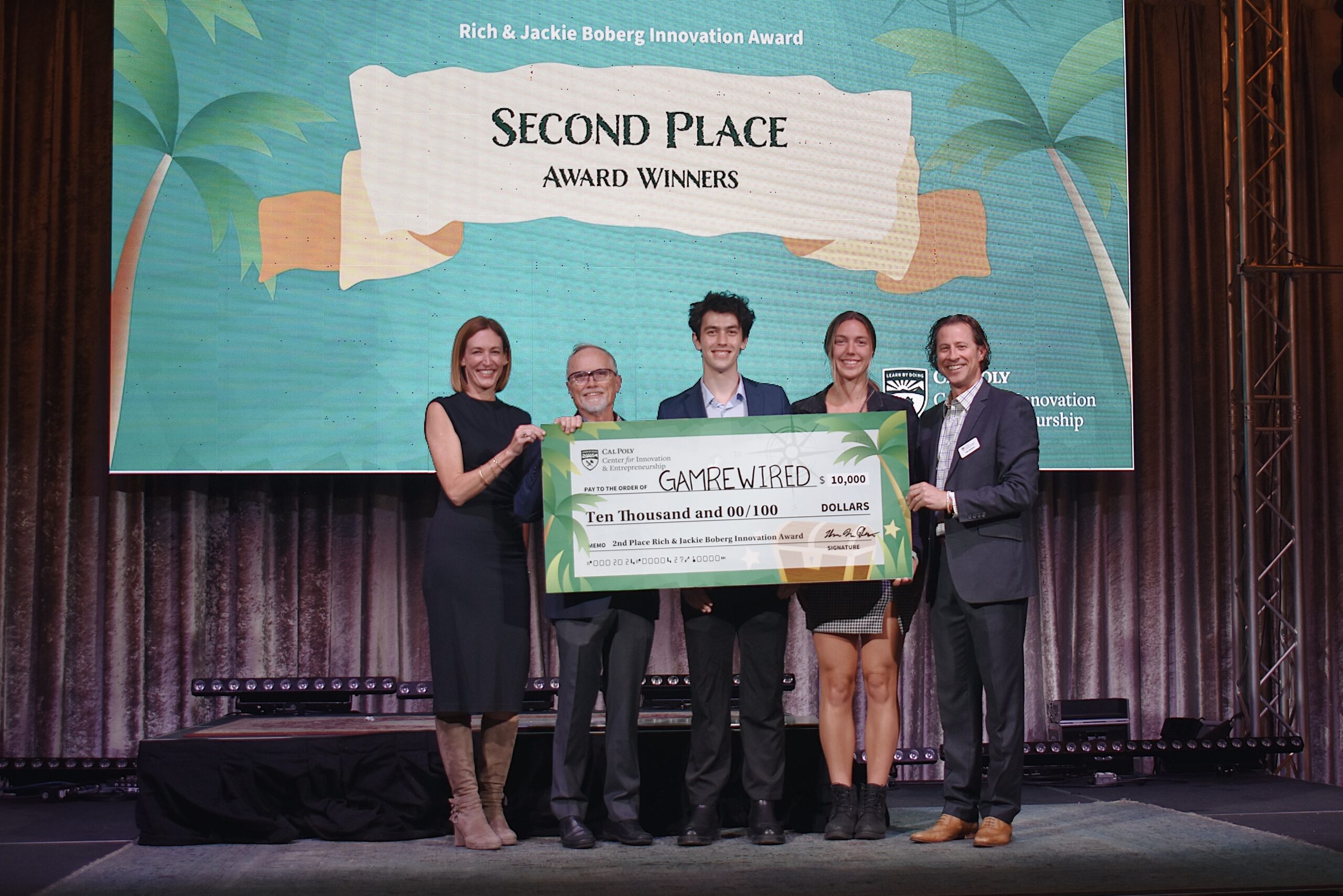Hatchery Spotlight: GamRewired

Two and a half million U.S. adults are considered severe gambling addicts, and another 5-8 million are considered moderate gamblers, according to the National Council on Problem Gambling.
Problem gambling, also referred to as “gambling addiction” or “gambling disorder” is a compulsive behavior that prevents victims from being able to control their urge to gamble despite negative consequences on finances, relationships and overall well-being.
Meet Austin Hatfield and Diana Koralski, two young entrepreneurs from California Polytechnic State University (Cal Poly) actively working to decrease the above statistics with their startup, GamRewired.
GamRewired aims to help gambling addicts replace their addictions with healthy habits through cognitive behavioral therapy. It will also act as a tool for those who regularly attend therapy and want to see progress in the days between sessions.
Hatfield, CEO and co-founder of GamRewired, found the current solutions for gambling addiction such as therapy to be insufficient. These solutions and recovery processes are best described as a yo-yo effect in which addicts experience highs during therapy sessions and lows in between sessions, Hatfield explained.
“With GamRewired, you get to keep making strides and replace your addiction, which is the part I fell in love with,” said Hatfield.
The idea for GamRewired originated from Hatfield’s interest in the field of psychology. He felt that options like therapy aren’t adequately meeting the needs of addicts and wanted to create something that enhances the effects of psychology to fully eliminate the inconsistent yo-yo effect.
Hatfield met his co-founder and CTO Koralski, soon-to-be computer science and business administration graduate from Cal Poly, through the Hatchery. The Hatchery is an on-campus startup incubator that provides student entrepreneurs with the resources to launch a business idea.
Koralski was looking for entrepreneurial opportunities through the Hatchery and was quickly introduced to Hatfield. Their partnership blossomed by leveraging their different, yet complimentary, skill sets, she said.
The Hatchery helped develop GamRewired in two crucial ways: connecting Hatfield and Koralski as business partners and providing a third-party perspective, he said.
Both Hatfield and Koralski credit the Hatchery for connecting them with other like-minded entrepreneurs and peers navigating a startup journey for the first time as well.
“When you’re working like 12, 14 hours a day, it feels like you’re missing out on the college experience. It feels like you’re missing out on life a lot of the time; but when you have someone else literally right next to you doing that, or even someone from another team doing that, it makes you feel like you’re not crazy in that sense, and it feels like you actually have a community,” said Hatfield.
Koralski encourages other students to get involved with the Hatchery because of the direction it gave her when facing the uncertainty attached to college, graduating and career pursuits.
“The Hatchery has provided a lot of guidance. I had an idea that I wanted to be a part of a tech startup or something like that, but I didn’t really know where to get started. The Hatchery has a really well-structured program with mentors who give feedback and open up a lot more opportunities,” Koralski said.
GamRewired participated in Innovation Quest (iQ) and received the second-place award of $10,000. iQ is a high-stakes competition where Cal Poly students pitch their innovative business ideas to a panel of judges in the hopes of winning funding for their startups.
“Winning iQ gave us the confidence that we are moving in the right direction. We got a lot of great feedback,” Koralski said. “It was really affirming of our idea and obviously, now we have some funding so we can start making the product come to life.”
GamRewired has several goals in the near future, including participating in the Summer Accelerator, an intensive 12-week program that provides Cal Poly students and recent graduates with the resources necessary to turn their innovative ideas into full-fledged startups.
Hatfield and Koralski look forward to working with great mentors, building their team and gaining expertise in the fields of AI and cognitive behavioral therapy by working with in-field professionals through the Summer Accelerator, they said.
On a long-term scale, GamRewired hopes to combat more than just gambling addiction. A few years down the line, they aim to enter the field of therapy on a broader scale and expand from gambling addiction into other co-addictions.
Hatfield calls for a need to revolutionize the field of psychology, and believes GamRewired is “just the platform to do that.”